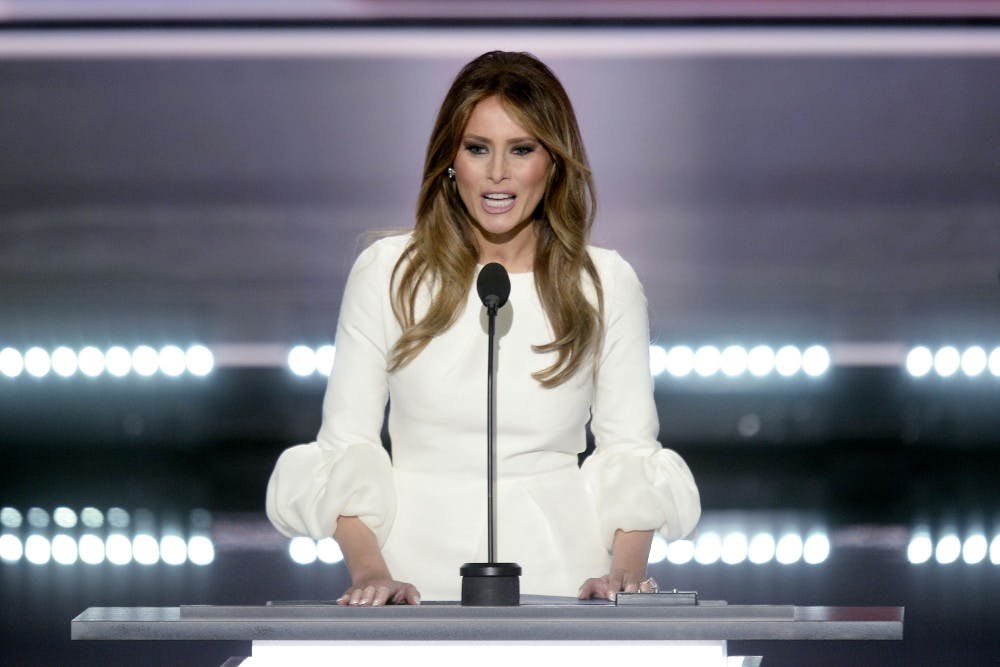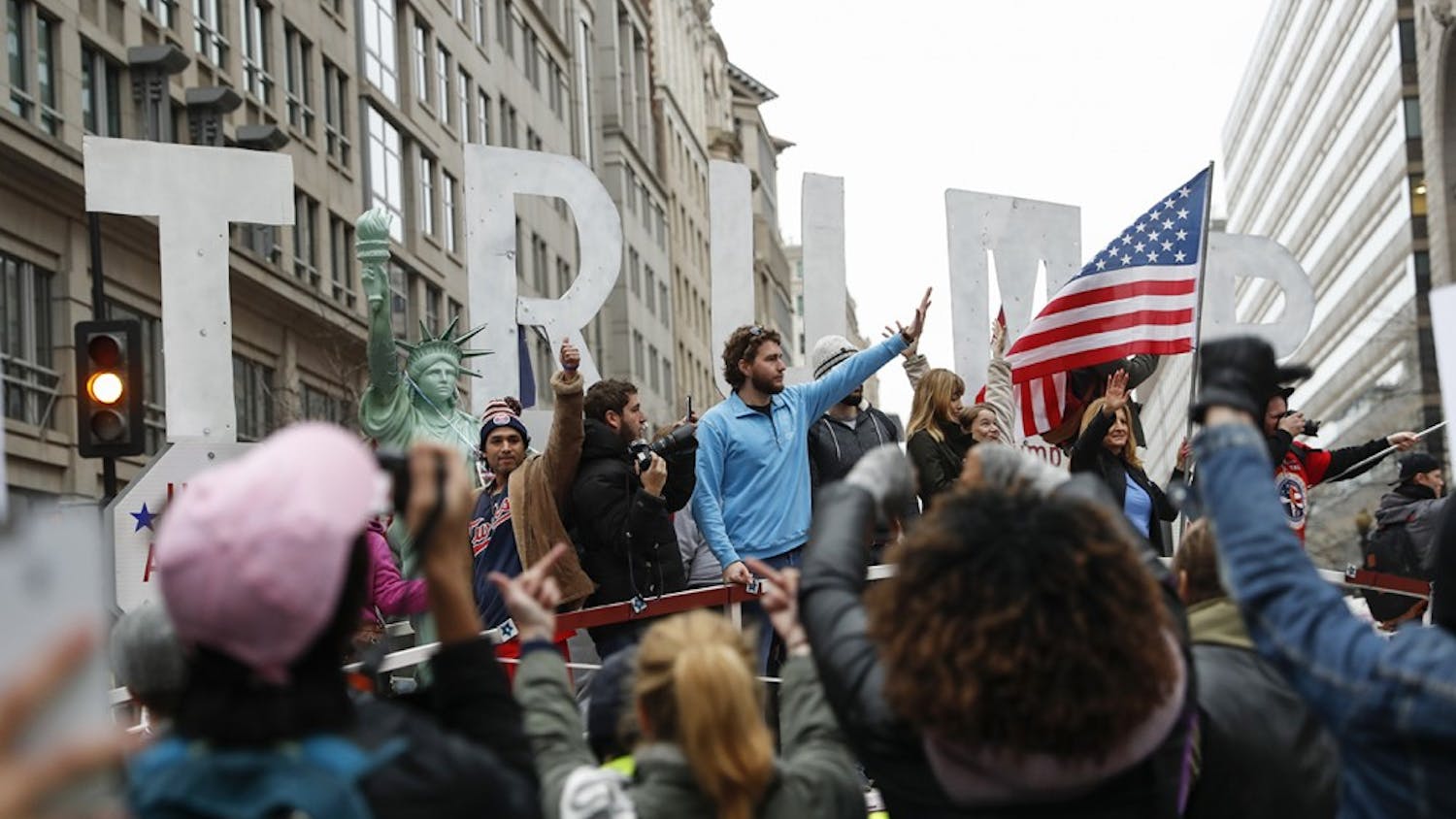After Melania Trump’s speech Monday at the Republican National Convention, it soon became clear parts of her address had been said before. Sentences and paragraphs of the speech bore strong similarities, sometimes word-for-word, to Michelle Obama’s 2008 Democratic Convention speech.
“The borrowing is clear as a bell,” said Roy Peter Clark, senior scholar at the Poynter Institute. “You have to be one of the worst kinds of partisans to try to deny the similarities.”
Yet staffers from Donald Trump’s presidential campaign initially made attempts to do just that. Trump aide Paul Manafort first said there was no borrowed language between the two speeches. Manafort later said the issue was overblown and unimportant to the campaign.
Many delegates said while they noticed the similarities, they don’t find them worrying.
“At the end of the day, I’m sure it wasn’t intentional plagiarism of the First Lady,” Indiana delegate Tom John said. “The sentiments she expressed are universal, so it seems reasonable that anybody could have said them.”
For a non-political figure to make their first public address at such a large event is a daunting task and credit ought to be given for that, John said.
“It’s disappointing this problem happened, but to me it’s even more disappointing the Obamas haven’t lived up to these words,” Idaho delegate Ron Nate said. “I think even if the Republicans didn’t come up with these words, they will actually live up to them.”
Clark said plagiarism seems to be a natural progression of the Trump campaign’s disregard for consistent factual accuracy. But he said it might also be more of a reflection of organizational failings than any views held by the Trumps.
“Plagiarism often occurs as a result of bad working habits or a disorganized organization,” Clark said. “This suggests more about the structure of the Trump campaign than about its attitudes toward plagiarism. Sometimes when something looks and smells like corruption to us, it’s often just incompetence.”
Washington delegate Garry Pagon said while he noticed the similarities, it wasn’t an issue he hadn’t seen before. Pagon said he has been a delegate since 1976.
“Comments from the non-political side tend to get recycled,” Pagon said. “It certainly doesn’t surprise me that her speech stayed so general and generic, even though I’m sure it was put together by speechwriters.”
Clark said while misuse of language by politicians has long been common, lifting language from the opposite political party’s comments was unexpected.
“It’s always been good for journalists to act as language abuse detectors,” Clark said. “It’s also good for citizens to apply some critical literacy skills to avoid being misled.”





